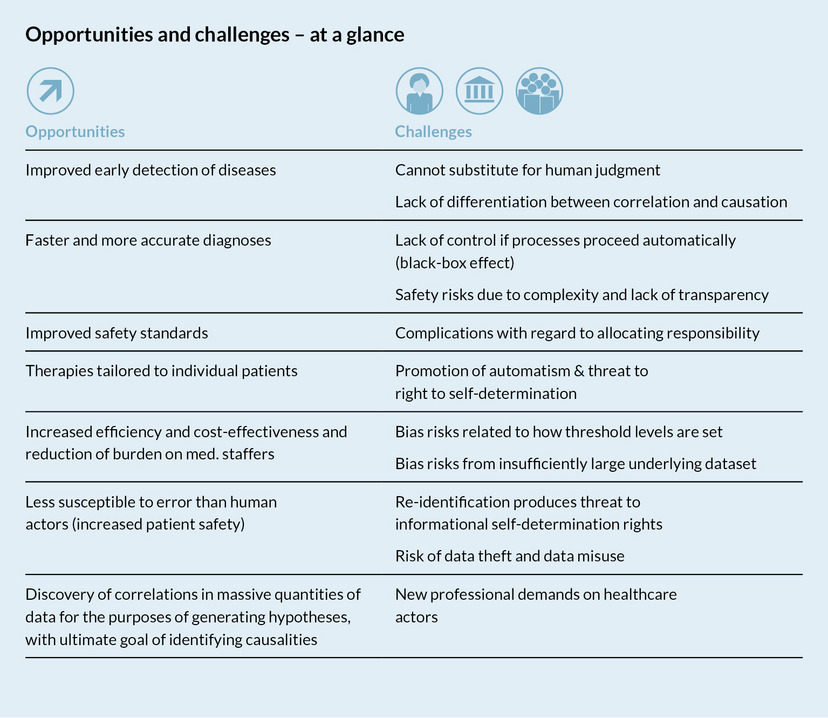In which areas of healthcare are algorithms applied - both today and in the future? How can they improve medical care? And what are new challenges that arise from their implementation? On behalf of the Bertelsmann Stiftung, the research center ceres at the University of Cologne has carried out a review and analysis of algorithms in digital healthcare. The analysis focuses on ethical issues arising from the use of intelligent digital systems - for individual users and those affected, as well as for institutional players in the healthcare sector and for society as a whole. One thing is clear: What we need is a comprehensive societal debate about possible positive and negative effects of the use of algorithms in medicine and how to deal with them appropriately.
Based on concrete examples and a comprehensive literature review, this analysis shows that the use of algorithms can increase the quality and efficiency of health care, for example through improved early detection of diseases, faster and more accurate diagnoses or by relieving medical staff of routine tasks. However, there are also challenges such as the difficulty of monitoring automatic processes, shortcomings in the performance of algorithms and the unclear attribution of responsibility for algorithmic decisions.





